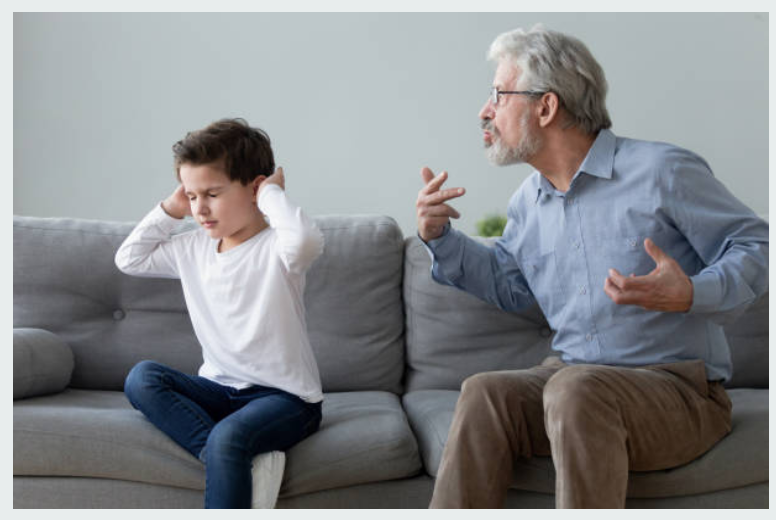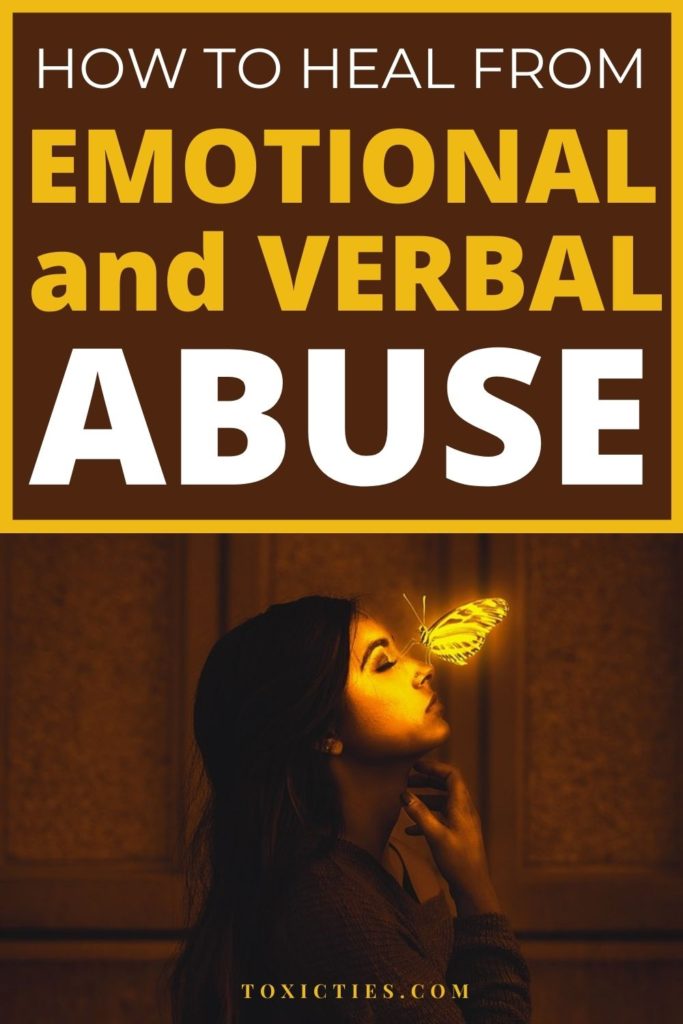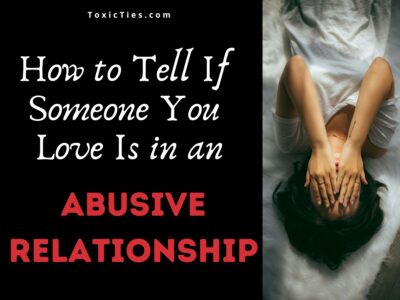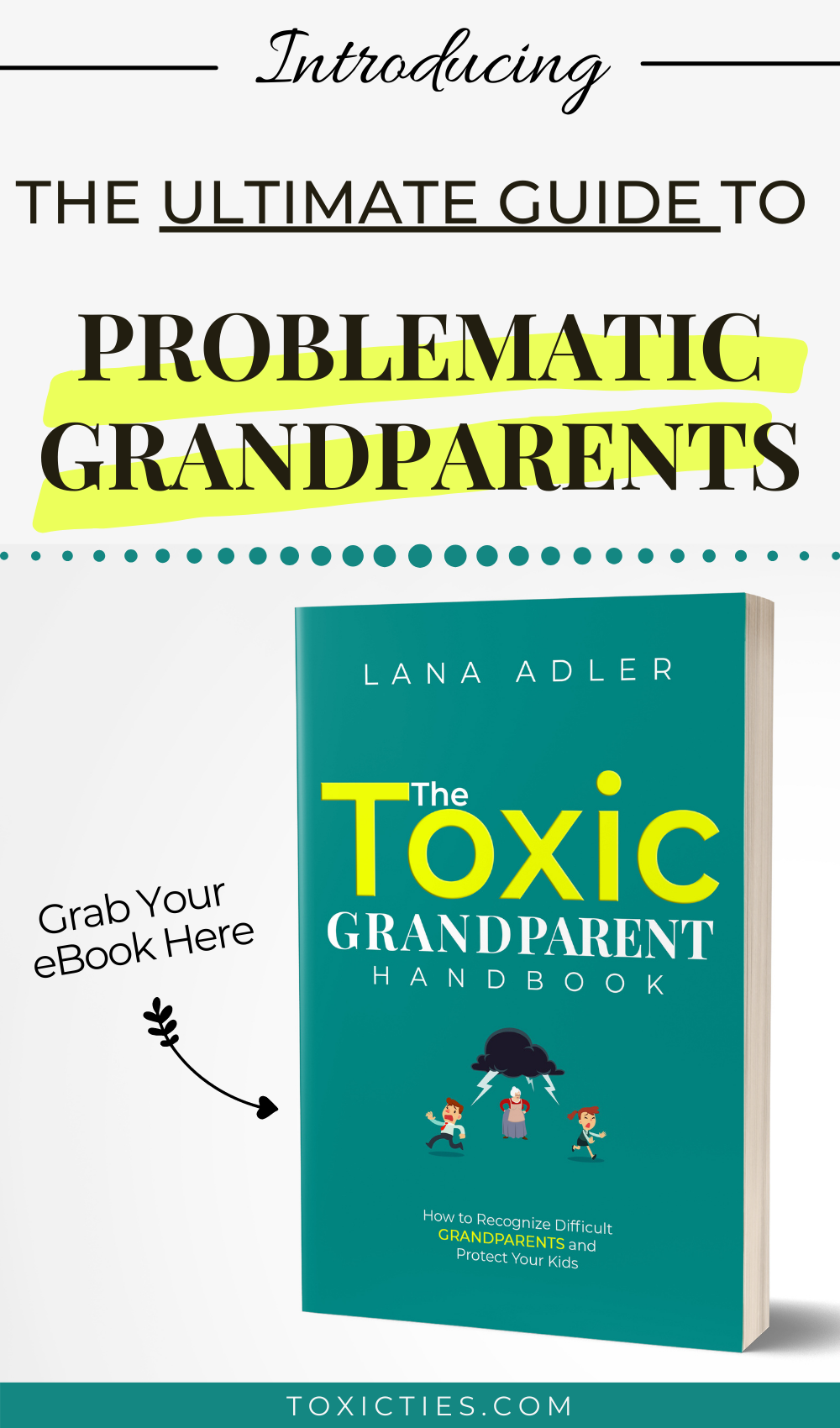If you’ve been affected by verbal or emotional abuse, you may be wondering: how do I heal and move past it?
That’s not easy because the wounds from emotional abuse are invisible.
“There is no scar tissue to stretch, no bruises to yellow and heal, no gaping wound to point to. In spite of their invisibility, emotional wounds comprise a very damaging form of abuse,” says Gregory Jantz in Healing the Scars of Emotional Abuse.
Because of their “invisibility,” wounds from emotional or verbal abuse can go unrecognized and unhealed for years, especially if it occurred in childhood.
Even when the abuse is recognized, people tend to hide it away because it’s mixed with shame and guilt.
Ignoring these wounds can have devastating consequences for your self-esteem, relationships, mental wellbeing, etc. Not to mention, they can manifest as “addictions,” “bad choices,” “laziness,” and other self-sabotaging behavior.
So how do you heal from emotional and verbal abuse?
Before we delve into healing, let’s address the obvious: what is emotional or verbal abuse?
What Is Emotional Abuse?
Emotional abuse is any nonphysical behavior or attitude that is designed to control, subdue, punish, or isolate another person through the use of humiliation or fear (Engel, 2002).
It’s a persistent pattern of treating someone in a way that makes them feel small and weak. In that sense, emotional abuse is an instrument of control.
As Jantz writes, it’s “an intentional assault by one person on another to so distort the victim’s view of self that the victim allows the abuser to control him or her.”
Emotional abuse is usually perpetrated over a period of time, by the same person or people. But it can also be a one-time occurrence that has a lasting and harmful impact.

Forms of Emotional Abuse
Emotional abuse can take on many forms. But generally, it can be divided into two categories: verbal and non-verbal. Examples of verbal emotional abuse include:
- dismissing
- belittling
- insulting nicknames
- yelling
- cursing
- using a hostile tone of voice
- patronizing
- provoking
- gaslighting
- “joking” or sarcasm
- “tuning out”
- interrupting
- threatening
- ridiculing
- using intimate knowledge to insult or win an argument
- breaking promises
- giving the silent treatment
These tactics undermine your self-esteem and target your psychological wellbeing. But emotional abuse isn’t limited to verbal attacks.
Sometimes the abuser will also subject the victim to “symbolic violence” — abusive behavior that represents physical violence without crossing that line. Still, it’s considered emotional abuse.
Examples of non-verbal emotional abuse include:
- throwing objects
- kicking or punching a wall
- shaking a finger or fist at the victim
- driving recklessly while the victim is in the car
- property damage (or threats of)
Mistreating the victim’s pet is also a form of emotional abuse.

Effects of Emotional Abuse
The effects of emotional abuse aren’t as obvious as the effects of physical or sexual abuse. So they can be easily overlooked.
Nonetheless, emotional abuse leaves deep scars on the psyche, especially the psyche of a child. Some of the most common effects of emotional and verbal abuse are:
- low self-esteem
- depression
- anxiety
- panic attacks
- lack of motivation
- psychosomatic illnesses (migraines, nausea, digestive issues, insomnia, chronic fatigue, chronic pain, skin rashes)
- hypochondria
- eating disorders
- drug use (as a form of self-medication)
- social withdrawal
- trust and commitment issues
- tendency to choose abusive partners
In severe cases, emotional abuse can also result in PTSD (post-traumatic stress disorder). Here are some of the symptoms that may indicate that you’re suffering from PTSD due to emotional or verbal abuse:
- constant stress
- fearful and anxious all the time
- sudden angry outbursts
- being easily startled
- irritability or feeling “on edge”
- self-degrading or pessimistic thoughts
- insomnia
- avoiding reminders of the abuse
- nightmares about the abuse
- flashbacks (reliving the abuse) accompanied by physical symptoms such as rapid heartbeat
How to Heal From Verbal and Emotional Abuse

1. Acknowledge the Abuse
A lot of people see emotional abuse as not “real abuse.” It’s as if they feel embarrassed to call what happened to them “abuse.”
On the one hand, they’re afraid to be ridiculed and invalidated. On the other hand, dealing with the pain of betrayal may be too unbearable.
So they go into denial and believe that they had a “normal childhood” or “normal marriage.”
Not only that, they may be dealing with gaslighting from the abusers.
For example, if you grew up with an emotionally abusive parent (i.e., narcissistic parent), and you confronted them about the abuse, you might hear:
“Well, it’s not like you were beaten or raped. My parents hit me but I never laid a finger on you. You are so ungrateful.”
Whether you came from an abusive family or had a toxic relationship as an adult, you may have internalized the idea that emotional abuse “doesn’t count.”
So despite an uneasy gut feeling that you didn’t have a “normal childhood” or “normal marriage,” you still hesitate to call it “abuse.”
This is why the first step to healing from emotional abuse is acknowledging it.
2. Identify the Effects of Abuse
Even if we try to deny the abuse, we can’t deny its impact.
Some of the consequences of abuse have to do with your emotional and physical wellbeing. Others are more insidious and pervasive.
You see, being emotionally abused over a long period of time, especially as a child, means you may have learned some emotionally abusive behaviors. And now you’re mimicking them in your own relationships.
So healing from the past involves identifying all the ways in which the abuse affected you and your ability to have healthy relationships.
It doesn’t mean you can’t have lasting, fulfilling relationships. But because you had a faulty relationship blueprint growing up, you may not be aware of your own abusive tendencies.
These tendencies usually come out in times of stress or conflict. For example, whenever you and your partner argue, you invalidate their feelings by saying: “You’re overreacting.” Or you get angry and storm out.
Whatever it is, know that it doesn’t make you an emotionally abusive person. We can all behave poorly when we feel pressured or stressed.
The important thing is to identify the effects of being emotionally and work to correct those unhealthy relationship patterns.

3. Make a Commitment to Healing
It may have taken you an eternity to get here but you’re here: ready to heal from your wounds and free yourself from that toxic energy. It is time.
But healing isn’t just something that happens to you. You have to make a choice to heal. And with that conscious choice will come opportunities.
The right book will just fall into your lap. Someone will say something to you, and it will be exactly what you needed to hear. The Universe will help in every way possible once you set a clear intention to heal.
So focus on your intent to let go of the pain. Write down all the reasons why you want to heal and move on. Answer these questions:
- How does carrying around the pain of emotional and verbal abuse affect you?
- How is it affecting other people in your life?
- Do you want to feel this way for the rest of your life?
- What would being healed feel like?
- Why do you owe it to yourself to recover from emotional and verbal abuse?
Come back to this list every time you feel triggered, overwhelmed, or losing faith.
4. Find Meaning
In order to heal from the wounds of emotional or verbal abuse, you need to find meaning in that experience.
Finding deeper meaning, or lessons, will catapult you out of the victim consciousness and help integrate your past into the larger matrix of your life.
So what value can you extract from emotional or psychological abuse?
First, you must try to see yourself from a spiritual perspective. From that vantage point, life is a journey of learning and growth. So everything that happens to us is meant to teach us something that will aid in our evolution.
From that perspective, difficult or even excruciating circumstances can be viewed as catalysts for growth.
Think about what your experience taught you.
Perhaps, it taught you to recognize the signs of emotional abuse so you’ll never allow it again.
Or maybe it pushed you to stand up for yourself and set boundaries. Or you’ve learned a lot about yourself — who you are, what you want and don’t want, etc.
As psychologist Viktor Frankl said,
In some ways suffering ceases to be suffering at the moment it finds a meaning.
When you find meaning in all of your life experiences, you reframe them in a positive way and take another step toward healing.
Related: 7 Spiritual Lessons a Narcissist Can Teach You

5. Process Your Feelings
Emotional and verbal abuse pain can run deep. And it’s natural to have a lot of pent-up emotions about it.
You may feel sad, confused, betrayed, angry, ashamed, guilty, disappointed, enraged, or even frozen.
You are not a bad person for feeling this way. But you do want to heal, be happy, and enjoy healthy relationships, right?
Then you need to work through your emotions.
The next time you feel triggered, instead of pushing it down or snapping, lean into your emotional state. Feel whatever comes up. Explore it.
What is it telling you? Verbalize it. Work with “I” statements. For example:
- I feel angry because…
- I feel betrayed because…
- Every time my mother [father, sister, spouse, etc.]… I feel …
Put it all on paper. Write down every visceral, scary, embarrassing thing that comes to mind. Then finish with: “I am done feeling angry [sad, scared] about the past. I’m letting it go now” or something of that nature. Then burn it.
If you like to process your feelings in a more physical way, take a boxing class, go for a run, or just take a long walk.
You can also confront your abuser if you feel that it will help. But only if it won’t expose you to further abuse or retaliation.
If you feel overwhelmed about facing your pain alone, find a professional counselor who can support and guide you through this journey. You don’t have to “DIY” your emotional healing. There’s no shame in seeking help.
Process the stored emotions the best you can – through talking about it in therapy, writing, art, spiritual practices, physical exercise — whatever fits you. As you move forward in this journey, you’ll find the next step easier.

6. Try to Forgive the Abuser
An act of sincere forgiveness is one of the most powerful tools of self-healing. Nothing is like it.
It can give you a sense of peace and calm, and make the world a safe place again.
But only if you’re willing to embrace it. Forgiveness isn’t possible until you process the feelings surrounding your emotional and verbal abuse.
That’s why you have to work through your pain before you can even think about forgiveness.
But what if you feel like the abuser doesn’t deserve your forgiveness?
That’s OK. It’s completely natural to feel that way. When you think about all the emotional and verbal abuse you’ve endured, the idea of forgiveness may seem absurd. Some people even find it offensive.
But that’s exactly why you should challenge yourself to forgive — because it’s hard, and because you don’t want to live your life with the past dragging behind you.
Remember: “To forgive is to detach.” So forgiveness isn’t you letting the abuser off the hook.
It’s more about letting go of that toxic emotional entanglement.

7. Forgive Yourself
As hard as forgiving the abuser is, forgiving yourself may be even harder.
You might be thinking: Wait a minute! What do I have to forgive myself for? I didn’t do anything wrong.
The most devastating thing about emotional and verbal abuse is that it destroys the victim’s self-esteem, distorts their self-image, and makes it easy to believe that they are to blame for the abuse.
So at some point in your journey, you may realize that you’ve internalized a lot of guilt and self-blame.
For example, if you grew up with an abusive parent, you may blame yourself for being a “bad” kid or for failing to make your parent happy.
Or if you were in an abusive intimate relationship, you may feel guilty for how the relationship ended or for allowing the abuse.
As a result, you may have been subconsciously punishing yourself. Without realizing it, you’ve been treating yourself worse than your worst enemy.
So it’s time to forgive yourself for
- being critical and unkind to yourself
- punishing yourself
- not allowing yourself to be happy
- always waiting for something to go wrong
- self-sabotaging
- feeling angry (depressed, anxious) all the time
- believing the abuser’s narrative
- believing the abuser will change
- not seeing the red flags sooner
- not standing up to the abuser
- giving your power away
- not being able to protect others from the abuser
- making excuses and covering up the abuse
- any past mistakes
Forgiving yourself isn’t the same as assuming that you are to blame for the abuse or anything that happened after.
It is simply having self-compassion to recognize all the pain and hardships that you went through. You are a survivor, and every day that you choose to embrace life is a victory. Healing isn’t possible without self-compassion.
So give yourself the permission to heal the scars of emotional and verbal abuse. You’ve punished yourself enough.
It’s time to start a new chapter in life.

References
Engel, B. (2002). The emotionally abusive relationship: How to stop being abused and how to stop abusing. New Jersey: John Wiley & Sons.
Jantz, G.L. & McMurray, A. (2009). Healing the Scars of Emotional Abuse. Revell.
Karakurt, G., & Silver, K. E. (2013). Emotional abuse in intimate relationships: the role of gender and age. Violence and victims, 28(5), 804–821. https://doi.org/10.1891/0886-6708.vv-d-12-00041








This article is a definite eye-opener for me. I know that I do struggle with anxiety and sometimes, even controlling my emotions—since, growing up I was verbally abused, even through my mid-twenties. I know when I try to confront my family about it, they just laugh at me, in-spite of my confrontations. If possible, any advice?
I know I have dealt with verbal and emotional abuse, since childhood, up until my early-to-mid 20’s. I know some people were saying things, even if it was behind my back (I won’t say names) but, I can only say that my parents were even told by some teachers that I wasn’t smart, in general. When I tried to live normal, like most people, and even tried having a job at a thrift store, some customers yelled at me, and I sometimes feel bad about being yelled at. I honestly am still struggling to heal myself from my past traumas from my emotional and verbal abuses—I tend to be more of an introvert more than I do an extrovert (someone whose outgoing), and I am trying to distance myself from those who have verbally and emotionally abused me in my past. I know that struggling is nothing new to me. Any healing advice, if at all possible?
Thank you so much, your blog has opened my eyes and has given me some things to consider. Thanks, I feel my healing beginning.
Your advice doesn’t seem to help with situations of any complexity, such as how to handle multiple members of a dysfunctional family using different ‘toxic’ strategies on one another. I think other members of my family manipulate, gaslight and stonewall. After a long time trying to achieve co-operation on an important decision that could not be avoided or delayed, I said as much, after which they started operating as a gang with me as scapegoat. That behaviour caused me to yell at them, call them names and resort to sarcasm. Which lead to them calling me ‘toxic’ and ‘controlling’ and giving me the silent treatment for what has now stretched into years. Except when other people are watching.
Therapists faced with all of us in a room might have some chance of understanding these dynamics, but I’m the only one who wants to do family therapy. The most that anyone else wants to do is call me names based on a selective reading of web pages like yours. Since ‘toxic’ is really hard to define and sounds quite loaded, I wonder whether writing about it like this really helps anyone.
I agree, “toxic” is a loaded word. And yes, this article doesn’t deal with complicated family situations. After all, it’s a blog post. To address those, you’d have to work with a therapist who specializes in these types of family dynamics. Wishing you to find the help you need.
Sincerely,
Lana